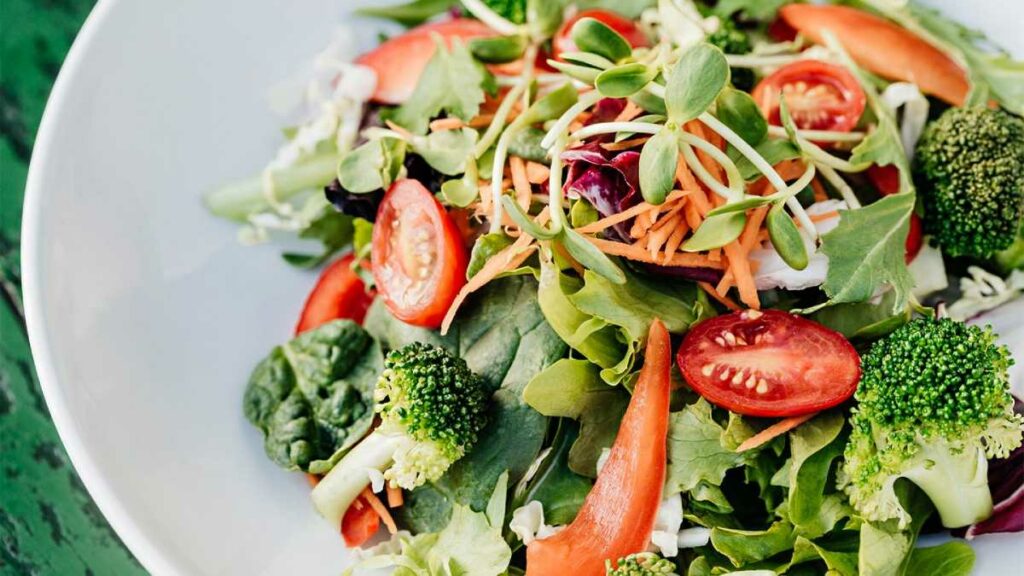“You are what you eat” is a proverb that many have heard. It seems that this is more than simply a catchy phrase. Our diets have a big impact on our general health, which includes lowering inflammation. Inflammation, a normal immunological reaction following an injury or illness, isn’t always a terrible thing. However, if it persists or gets out of control, it can lead to a number of health problems, such as diabetes, heart disease, and autoimmune diseases like Crohn’s disease.
Eating meals high in beneficial chemicals like antioxidants and omega-3 fatty acids is one effective strategy to fight inflammation. Though obviously the most obvious are fresh fruits and veggies, there are lots of cupboard staples that work just as well. These eight pantry items reduce inflammation and are great to have on hand.
Virgin Olive Oil Extra
Now let’s explore extra-virgin olive oil, the liquid gold of the kitchen. This oil, a commonplace in many homes, is high in antioxidants like polyphenols and monounsaturated fats. It has been demonstrated that monounsaturated fats, especially oleic acid, have anti-inflammatory properties in the body by regulating immunological responses that cause inflammation. Extra virgin olive oil can be used to sauté vegetables, shaken into a salad dressing, or drizzled over cooked vegetables right before serving.
Turmeric
Turmeric’s main component, curcumin, is a strong antioxidant that has been demonstrated to lower a number of inflammatory biomarkers. It’s crucial to remember that taking turmeric with piperine-containing black pepper has been demonstrated to improve the absorption of curcumin; therefore, for optimal effects, think about combining the two components. Consider drinking a turmeric latte or adding some turmeric to the cauliflower before roasting.
Canned Tuna
Cancelled tuna, often commended for its ease of use and adaptability, is an excellent source of omega-3 fatty acids, particularly docosahexaenoic acid (DHA) and eicosapentaenoic acid (EPA), which are widely recognized for their anti-inflammatory qualities. These necessary fats can improve heart health and play a critical role in decreasing inflammation by acting as precursors to anti-inflammatory components. Canned tuna is not just a pantry staple—it’s also a delicious method to give your body a boost of anti-inflammatory goodness—whether you’re throwing some in a tuna salad or adding it to spaghetti.
Kidney Beans
Kidney beans are quite versatile and also a great source of anti-inflammatory chemicals. They include a lot of dietary fiber, which helps decrease systemic inflammation by supporting a healthy gut microbiota. Additionally, beans have a range of antioxidants that might lessen oxidative stress, such as flavonoids and polyphenol. In addition to being used in salads and bean dips, kidney beans are frequently utilized in chilis and stews.
Almonds
Not only do these delicious almonds taste great as a snack, but they also reduce inflammation well. Almonds’ anti-inflammatory benefits stem from a number of characteristics. They include a lot of monounsaturated fats, especially oleic acid, which has the ability to control inflammation and lessen the activity of immune cells. Antioxidants included in almonds, such as polyphenols and vitamin E, can also aid in scavenging free radicals. Eat a handful of spiced almonds as a snack or add some to your yogurt and salad.
Canned Tomatoes
The unsung hero of chili, soups, sauces, and other dishes is a fantastic source of anti-inflammatory nutrients. Tomatoes are a great source of lycopene, a potent antioxidant and carotenoid that may help lower inflammation-causing oxidative stress. Vitamin C, which helps the body’s defenses against oxidative stress, is also present in canned tomatoes. You can make curries, pasta sauce, and more with canned tomatoes.
Garlic
In addition to bringing taste to mouthwatering dishes like 20-Minute Chicken Cutlets with Garlic Tomato Sauce, garlic also has anti-inflammatory properties. Allicin, a sulfur-containing substance that is present in fresh garlic when it is cut or crushed, is present in this small bulb. It has been demonstrated that allicin inhibits the action of inflammatory enzymes and lowers the generation of cytokines that promote inflammation. Make garlicky shrimp and broccoli for supper tonight, or grate garlic into a vinaigrette to sprinkle over salads.
Green Tea
Now, let’s discuss green tea in detail! It contains a lot of polyphenols, especially epigallocatechin gallate (EGCG), which inhibits the release of pro-inflammatory cytokines and helps modulate signaling pathways related to inflammation. Try drinking a warm cup of green tea in the morning instead of coffee to benefit from its anti-inflammatory qualities, or incorporate it into a smoothie.
Keeping your pantry free of inflammation is a proactive way to build a foundation for long-term health, vitality, and wellbeing. Long-term, these top eight anti-inflammatory pantry staples will help you achieve major health benefits. They’re a terrific place to start.

